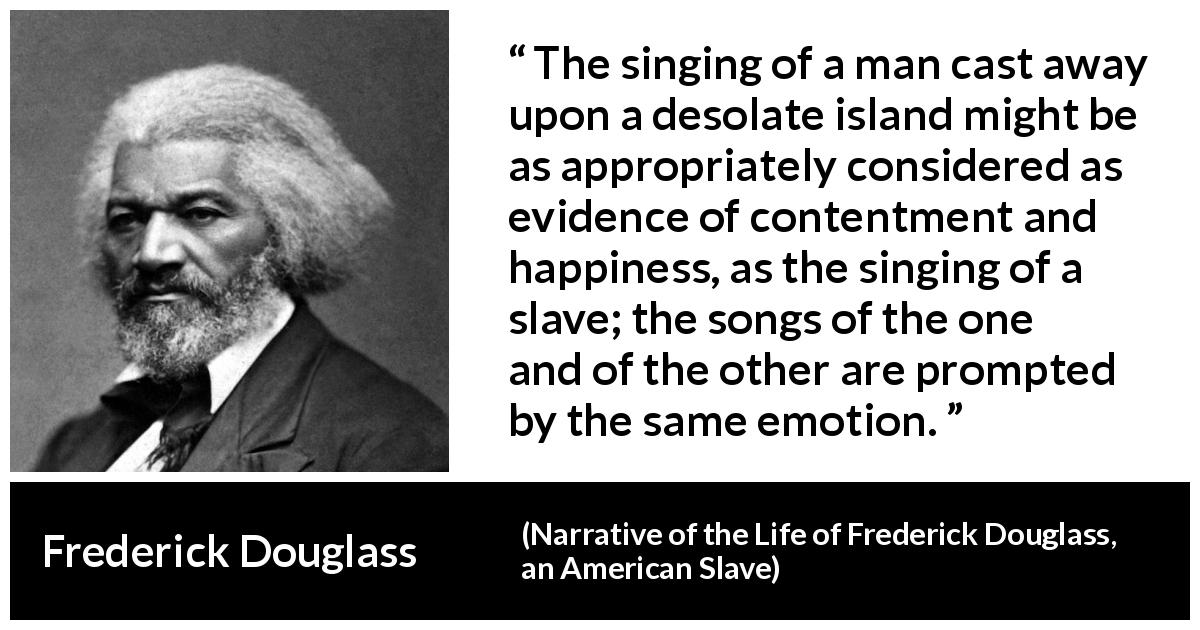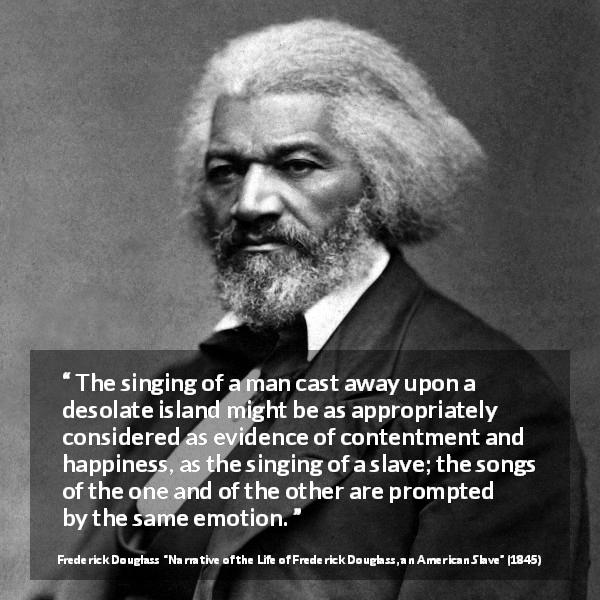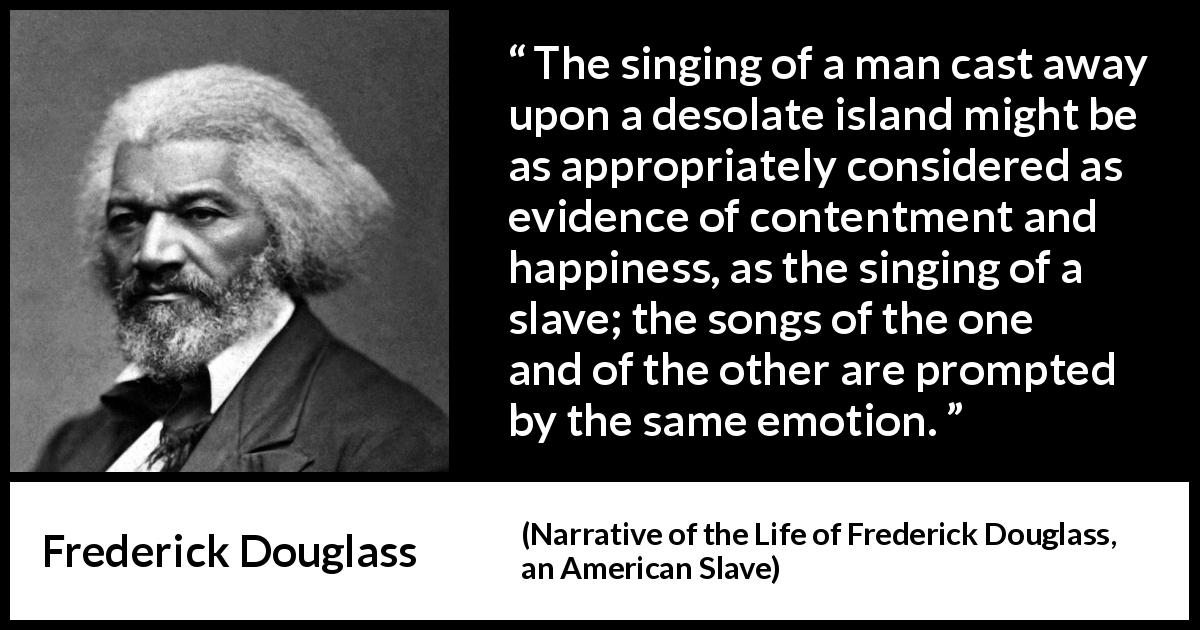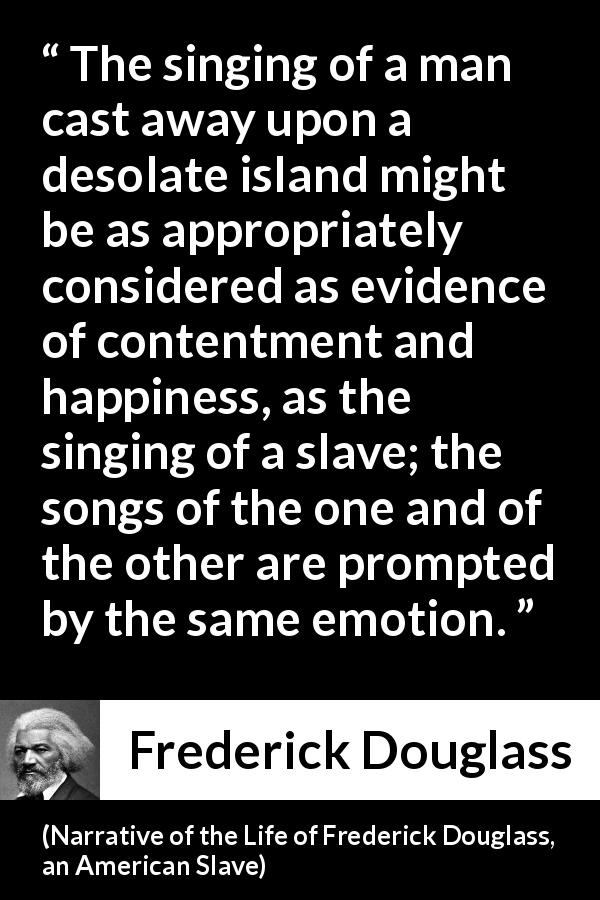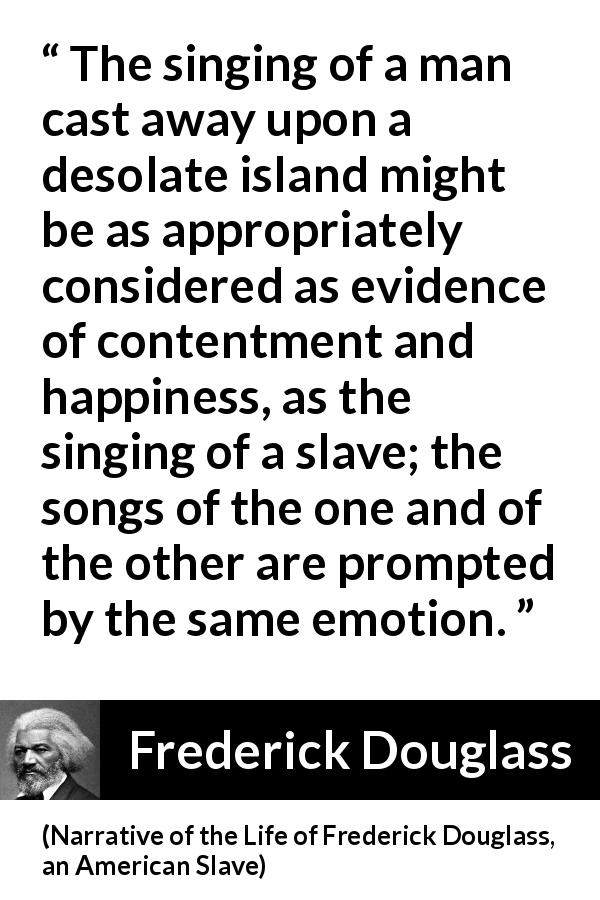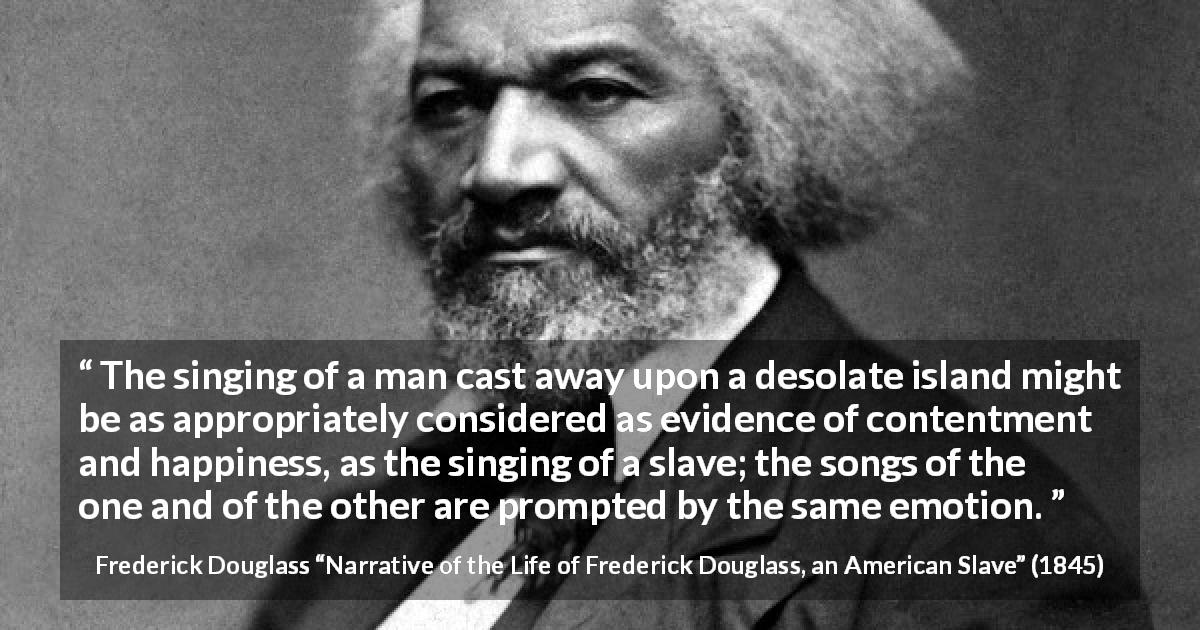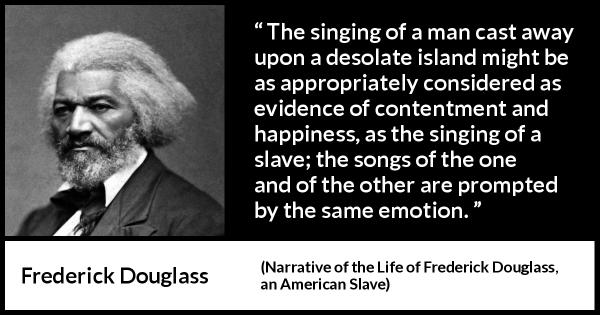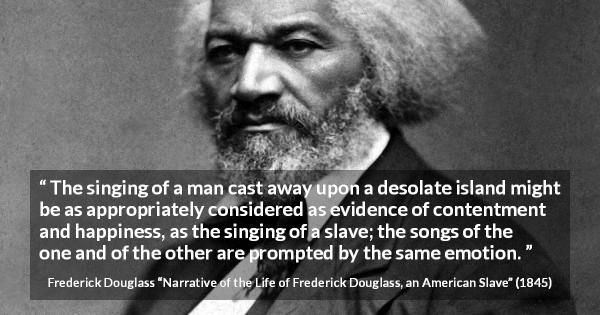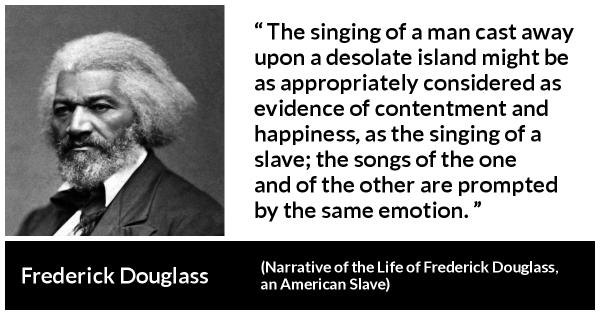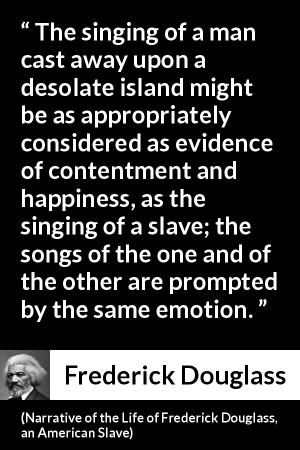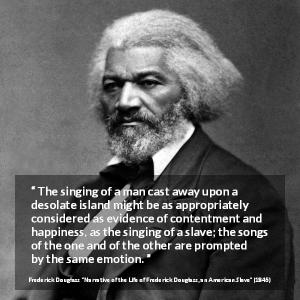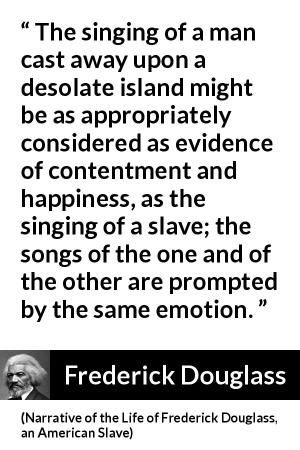“ The singing of a man cast away upon a desolate island might be as appropriately considered as evidence of contentment and happiness, as the singing of a slave; the songs of the one and of the other are prompted by the same emotion. ”
Frederick Douglass, Narrative of the Life of Frederick Douglass, an American Slave (1845). copy citation
| Author | Frederick Douglass |
|---|---|
| Source | Narrative of the Life of Frederick Douglass, an American Slave |
| Topic | happiness slavery emotion singing |
| Date | 1845 |
| Language | English |
| Reference | |
| Note | |
| Weblink | http://www.gutenberg.org/files/23/23-h/23-h.htm |
Context
“The songs of the slave represent the sorrows of his heart; and he is relieved by them, only as an aching heart is relieved by its tears. At least, such is my experience. I have often sung to drown my sorrow, but seldom to express my happiness. Crying for joy, and singing for joy, were alike uncommon to me while in the jaws of slavery. The singing of a man cast away upon a desolate island might be as appropriately considered as evidence of contentment and happiness, as the singing of a slave; the songs of the one and of the other are prompted by the same emotion.
CHAPTER III Colonel Lloyd kept a large and finely cultivated garden, which afforded almost constant employment for four men, besides the chief gardener, (Mr. M'Durmond.) This garden was probably the greatest attraction of the place.” source
CHAPTER III Colonel Lloyd kept a large and finely cultivated garden, which afforded almost constant employment for four men, besides the chief gardener, (Mr. M'Durmond.) This garden was probably the greatest attraction of the place.” source
